
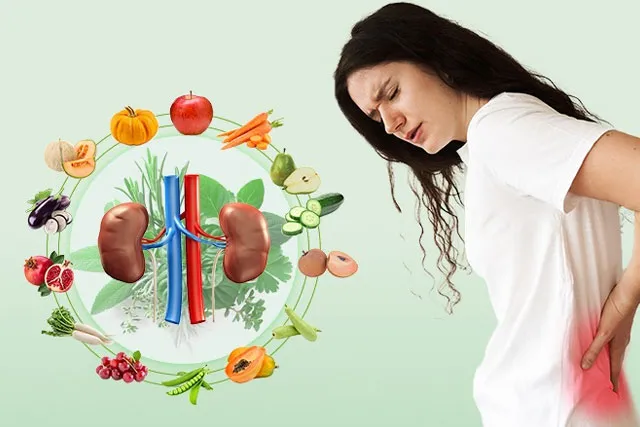
Finding the right dietitian for Kidney Disease Management Diet near you in Mayur Vihar Phase 1 has never been easier! Certified best nutritionist for Kidney Disease Management in Mayur Vihar Phase 1 for your Lifestyle Wellness, Nt. Divya Gandhi provides you Best Diet Plan.
Specialized dietitian in Mayur Vihar Phase 1 offering expert guidance for managing kidney disease through tailored nutrition plans. Take control of your health today.
Kidney disease is a condition that progresses gradually and often goes unnoticed by patients in its early stages. This makes it a "silent killer." However, if you are dealing with kidney disease, whether it be in the early stages, on dialysis, or have undergone a kidney transplant, Dietitian Divya Gandhi in Mayur Vihar Phase 1 can assist you in managing your symptoms and living a healthier life. Our expertise lies in providing specialized diet and nutrition plans for individuals with kidney diseases such as acute and chronic kidney disease, kidney stones, dialysis, kidney transplant, or polycystic kidneys. We closely monitor your kidney blood parameters and customize your diet accordingly. Despite the restrictions that come with a renal diet, we take into consideration your food preferences and habits to create a meal plan that you will find enjoyable and easy to follow, whether you are at home or out.
At Nt. Divya Gandhi, we prioritize identifying the root cause of your illness rather than simply alleviating symptoms. We provide recommendations on how to eat healthily based on the stage of your kidney disease, with the aim of slowing down or halting the progression to kidney failure.
Patient education is an essential aspect of our approach. If you are on dialysis, our dietitian will advise you on the appropriate fluid intake to control fluid buildup in your blood between treatments. If you also have diabetes or high blood pressure, we will tailor your diet to ensure it is suitable for all of your conditions.
Even if you have undergone a kidney transplant, it is crucial to follow the guidelines provided by our dietitian to maintain the health of your new kidney. Depending on your specific circumstances, you may have a different eating plan immediately after surgery, which may involve a higher protein intake to aid in your recovery. Additionally, adjustments to your nutrient consumption may be necessary based on how your body responds to anti-rejection medications. Our dietitian will guide you through any necessary changes to ensure the long-term success of your transplant.
To ensure a healthy renal diet, it is important to monitor certain substances. These substances include sodium, phosphorous, protein, potassium, and calcium. By keeping track of these substances, individuals can effectively manage their kidney function and promote overall kidney health. Working closely with a renal dietitian in Mayur Vihar Phase 1 is essential in developing a personalized diet plan that meets the specific needs of each patient.
Sodium
Sodium is a mineral commonly found in natural foods, often associated with salt. However, salt is a compound of sodium and chloride. Processed foods tend to have higher sodium levels due to added salt. Sodium is one of the body's main electrolytes, along with potassium and chloride. It plays a crucial role in regulating blood pressure, nerve function, muscle contraction, and maintaining the body's fluid balance.
For individuals with kidney disease, monitoring sodium intake is essential. Kidneys affected by the disease may struggle to eliminate excess sodium and fluid, leading to various health issues such as increased thirst, edema, high blood pressure, heart failure, and shortness of breath.
Patients can effectively monitor their sodium intake by consistently checking food labels for sodium content, paying attention to serving sizes, opting for fresh meats over packaged ones, selecting fresh fruits and vegetables or no-salt-added canned and frozen produce, steering clear of processed foods, comparing brands to choose items with the lowest sodium levels, using spices without "salt" in their name, cooking at home without adding salt, and restricting total sodium intake to 400 mg per meal and 150 mg per snack. For more detailed guidelines, a printable Low Sodium Diet Guidelines (PDF) is available.
Potassium, a mineral present in various food sources and naturally occurring in the body, serves a vital function. It contributes to the proper functioning of the muscles and ensures a regular heartbeat. Additionally, potassium plays a crucial role in maintaining the balance of fluids and electrolytes in the bloodstream. The kidneys play a significant role in regulating the potassium levels in the body by eliminating any excess through urine.
Monitoring potassium intake is crucial for kidney patients due to the inability of their kidneys to eliminate excess potassium. This leads to a buildup of potassium levels in the body, resulting in a condition called hyperkalemia. Hyperkalemia can have severe consequences such as muscle weakness, irregular heartbeat, slow pulse, heart attacks, and even death. Therefore, it is essential for kidney patients to closely monitor their potassium intake to maintain a healthy balance and prevent these potential complications.
Patients can ensure that they are monitoring their potassium intake by following these guidelines:
1. Consult with a renal dietitian to develop a personalized eating plan.
2. Restrict the consumption of foods that are rich in potassium.
3. Limit the intake of milk and dairy products to 8 ounces per day.
4. Opt for fresh fruits and vegetables.
5. Avoid using salt substitutes and seasonings that contain potassium.
6. Read the labels on packaged foods and avoid those that contain potassium chloride.
7. Pay careful attention to serving sizes.
8. Maintain a food journal to track potassium intake.
You can find a printable version of the Low Potassium Diet Guidelines in PDF format.
What is the significance of Phosphorus in the human body?
Phosphorus plays a crucial role in maintaining and developing bones. Additionally, it aids in the formation of connective tissues and organs, as well as facilitating muscle movement. After consuming and digesting phosphorus-rich food, the small intestines absorb the mineral, allowing it to be stored in the bones.
Why is it important for individuals with kidney problems to monitor their Phosphorus intake?
In individuals with normal kidney function, excess phosphorus in the blood can be eliminated by the kidneys. However, when kidney function is compromised, the ability to remove excess phosphorus is hindered. Elevated levels of phosphorus can lead to the depletion of calcium from the bones, resulting in weakened bones. Furthermore, it can cause harmful calcium deposits in blood vessels, lungs, eyes, and the heart.
How can individuals keep track of their Phosphorus intake?
Phosphorus is present in a wide range of foods. Therefore, individuals with impaired kidney function should collaborate with a renal dietitian to effectively manage their phosphorus levels.
Here are some suggestions to maintain safe levels of phosphorus:
1. Familiarize yourself with foods that have lower phosphorus content.
2. Be mindful of portion sizes.
3. Opt for smaller servings of protein-rich foods during meals and snacks.
4. Incorporate fresh fruits and vegetables into your diet.
5. Consult your doctor about the possibility of using phosphate binders during meals.
6. Steer clear of packaged foods that contain added phosphorus. Check ingredient labels for the terms "phosphorus" or "PHOS."
7. Keep a food journal to track your intake.
You can access the Printable Low Phosphorus Diet Guidelines (PDF) for more information.
Protein
Protein does not pose a problem for individuals with healthy kidneys. Typically, protein is consumed and waste products are produced, which are then filtered by the kidney's nephrons. Subsequently, with the assistance of additional renal proteins, the waste is converted into urine. Conversely, when kidneys are damaged, they fail to eliminate protein waste, leading to its accumulation in the bloodstream.
For patients with Chronic Kidney Disease, proper protein consumption can be challenging as the recommended amount varies depending on the stage of the disease. Protein is crucial for tissue maintenance and various bodily functions, so it is essential to consume the appropriate quantity based on the specific stage of the disease as advised by your nephrologist or renal dietician.
Fluid management is crucial for individuals in the advanced stages of Chronic Kidney Disease since consuming normal amounts of fluids can result in fluid retention, which can be dangerous. Those undergoing dialysis often experience reduced urine output, and excess fluid in the body can exert unnecessary strain on the heart and lungs.
The calculation of a patient's fluid allowance is personalized, taking into account factors such as urine output and dialysis settings. It is imperative to adhere to the fluid intake guidelines provided by your nephrologist or nutritionist.
To regulate fluid intake, patients should:
1. Abide by the prescribed amount of fluids as instructed by their doctor.
2. Consider the quantity of fluids present in foods that melt at room temperature (such as Jell-O®, popsicles, etc.).
3. Be mindful of the amount of fluids used in cooking.
Your renal dietitian conducts regular nutrition assessments and monitors your lab work, medications, and weight during each visit to provide recommendations. They also keep an eye on your blood pressure and adjust your eating plans accordingly. They understand that your diet not only impacts your kidneys but also your overall health.
If you are undergoing dialysis, your dietitian will likely monitor your dry weight and weight between appointments to assess the effectiveness of your treatments. If weight loss is necessary before transplant surgery, your dietitian can assist with that as well.
For post-transplant patients, your dietitian may suggest following a low-sodium meal plan to help manage blood pressure. They will ensure you are consuming balanced foods and beverages that support a healthy weight, overall health, and are compatible with your immunosuppressive medications. Additionally, they can educate you and your caregiver on food safety practices to prevent infections and reduce the risk of ingesting harmful bacteria.
Adhering to your renal dietitian's advice is crucial for maintaining good overall health. For more information on kidney-friendly eating, recipes, grocery shopping lists, nutrient tracking, and more, please visit Kidney Kitchen®.
Under the categories of Healthy Living, Living with Kidney Disease, Nutrition, and Diet, information is provided regarding the prevalence of kidney disease. Often, kidney disease remains undetected until it reaches an advanced stage, with individuals becoming aware of the condition only when kidney function is significantly reduced. As kidney disease progresses, the organ's ability to function is severely impacted, leading to the accumulation of dangerous levels of fluid and waste in the body. Regular monitoring of kidney function is crucial for individuals at risk of developing kidney disease or those already suffering from it. Early detection plays a key role in preventing severe kidney damage.
Symptoms commonly associated with kidney disease include high blood pressure, blood in urine, and fatigue. Individuals with compromised kidney function are advised to follow a renal or kidney diet to reduce the buildup of waste in their blood. Waste in the blood originates from the consumption of food and liquids, and when kidney function is impaired, the kidneys are unable to effectively filter and remove waste. Failure to eliminate waste from the blood can have adverse effects on electrolyte levels. Adhering to a kidney diet can support kidney function and slow down the progression towards complete kidney failure.
A renal diet typically involves low sodium, phosphorus, and protein intake, while emphasizing the consumption of high-quality protein and restricting fluid intake. Some patients may also need to limit their intake of potassium and calcium. Since each individual's body is unique, it is essential for patients to collaborate with a renal dietitian to tailor their dietary plan according to their specific requirements.
Protein intake is generally not a concern for individuals with healthy kidneys. Under normal circumstances, protein is consumed, waste products are produced, and the nephrons in the kidneys filter out these waste products. Subsequently, with the assistance of additional renal proteins, the waste is converted into urine. Conversely, when kidneys are damaged, they are unable to effectively eliminate protein waste, leading to its accumulation in the bloodstream.
For individuals with Chronic Kidney Disease, determining the appropriate protein intake can be challenging as the recommended amount varies depending on the stage of the disease. Protein plays a crucial role in tissue maintenance and other bodily functions, underscoring the importance of adhering to the specific dietary guidelines provided by your nephrologist or renal dietician for your particular stage of the disease.


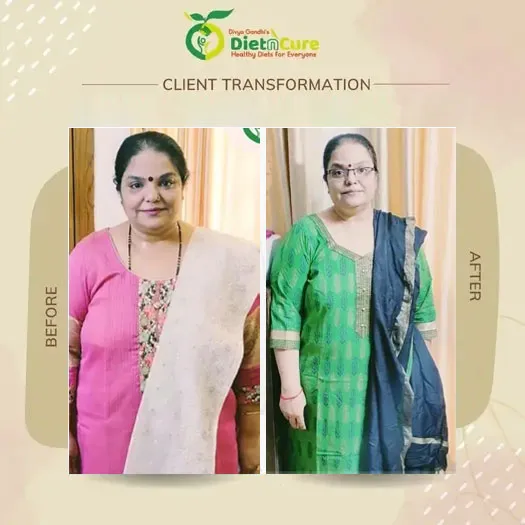
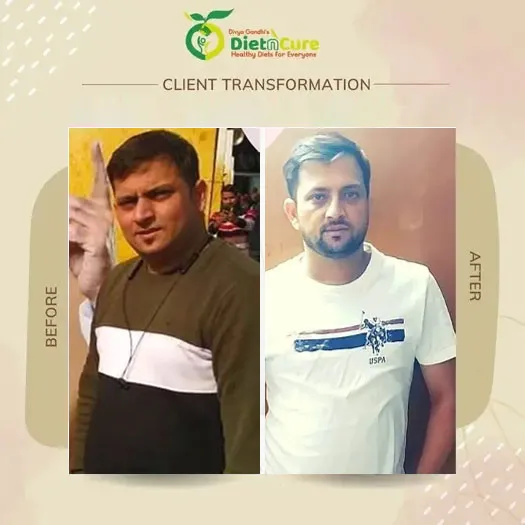








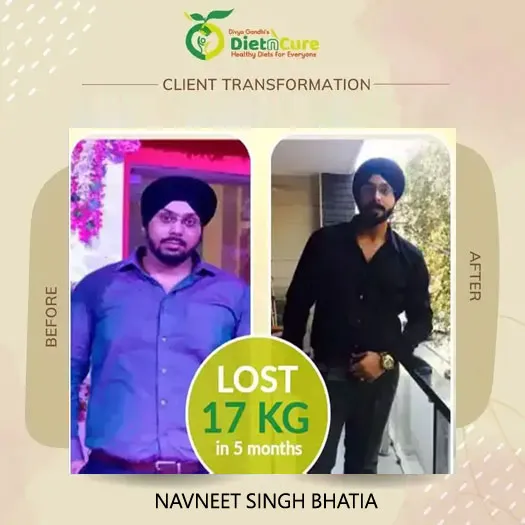
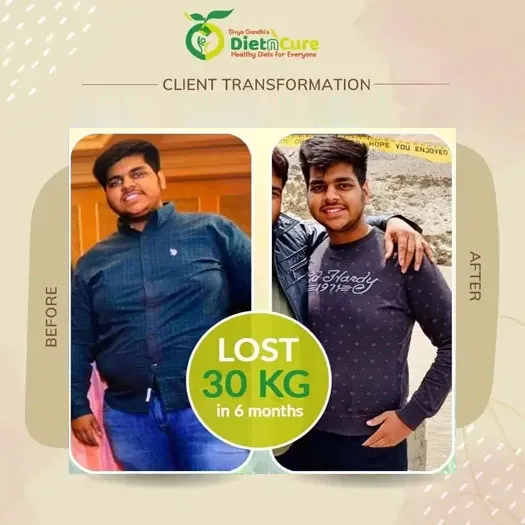
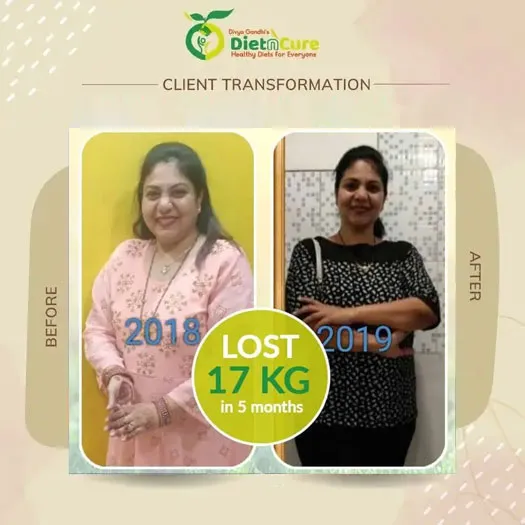

20 Mar 2024
Mrs. Divya Gandhi is the best dietition at the moment. I had followed many dietition in the last 2 years and now I am completely settled with Divya... Read Full Testimonial
3 Mar 2024
It was really good. She is very supportive and gives the right diet to treat the issue. She is always available at the time of need. The diets given to... Read Full Testimonial
18 Feb 2024
The experience was very good...easy diet plans that could be followed at home comfortably.. The best part that d dietian understands that u might need... Read Full Testimonial
10 Feb 2024
I have been to many dietition and I have always felt a lot of pressure of following rigorous diet and with Divya its not about pressure at... Read Full Testimonial
31 Jan 2024
Divya Gandhi is exceptionally well nutritionist, initially I was bit sceptical about going to a dietician thinking it will not help since I was not able to loose... Read Full Testimonial
29 Jan 2024
It's been 1 and a half month since I have started following her diet plans and I have lost 7kgs and I am very happy and impressed I would love to... Read Full Testimonial
6 Jan 2024
Divya is a nice doctor. She understands your health condition, then prescribes a diet which is not very tough to follow. Lot of patience is required to... Read Full Testimonial
18 Oct 2023
Divya is very friendly and warm person.I like her flexible meal plans and her diets are easy to follow.She listens you patiently and gives diet according to... Read Full Testimonial
9 July 2023
I never thought dieting would be such fun. It was a wonderful experience consulting Divya. Weight loss was so easy. She always understands what... Read Full Testimonial
28 June 2023
Till now my experience with Divya is very good.she gives all kind of food items that can very well keep all your taste buds active and relishing. I started... Read Full Testimonial
22 Mar 2023
Experience was amazing with Dr. Divya the way she talk and understands the issue and basis on which she guides. Whenever I had any issue or concern... Read Full Testimonial

Dietitian Divya Gandhi in Mayur Vihar Phase 1 has built a lot of Credibility in many years. Dietician Divya Gandhi in Mayur Vihar Phase 1 has become the Top Most verified Nutritionist in Mayur Vihar Phase 1.
Read about us on Google by just writing Divya Gandhi. See yourself our testimonials and reviews.
See yourself our testimonials and reviews by clicking the below icons.
Top Most Verified Dietitian on Practo


Our Clients
Happy Clients
Kgs Weight Loss
1. Book your consultation
Choose online or offline and share your basic details.
2. Complete your health assessment
We analyze medical history, lifestyle, eating habits, and goals.
3. Receive your customized diet plan
A weekly Indian meal plan tailored to your body and routine.
4. Start your program
Follow easy meals with flexible food options and substitutes.
5. Weekly follow-ups
Track progress, adjust calories, and modify meal plans as required.
6. See visible results
Sustainable weight loss, improved energy, and better health.
It doesn't matter at all where you stay. My programs are available across the globe. I manage my online clients very methodically.
We have built a lot of credibility in the last 10 to 12 years. We are the top most dietitians in North Delhi.
Dt. Divya Gandhi is rated the top most dietitian in Delhi on Practo. She has held this number 1 spot from the last 8 years.
We got the highest number of reviews and testimonials on Practo and Google which proves that we have the ability to take care of our clients
We have so far catered to 15000 plus clients in the last 8 to 10 years and has delivered a weight loss of 70000 kgs among 15000 plus clients
To validate us to what I have told you right now, while reading this, please write dietitian in North Delhi on Google. You will yourself see that we are the top rated dietition.
She is panellist on many news channel like CNBC, Zee News, India Today.
We have 20 plus celebrities on board Like Rashmi Desai, Tina dutta etc. Will share the list of celebrities.
Our Focus is just not on weight loss, our focus is also what will happen once your weight loss target is met. We will educate you how to maintain the weight you have lost. As this is more important to sustain the amount of weight you have lost. Our association will not end once you have met your desired weight loss objective. We will keep working with you and make you understand how to go back to your lifestyle without gaining weight.
If you give me a guarantee that that you will follow like a good student, I will also give you a guarantee that you will lose unless you have an underlying medical history you are not aware of.
And also I can't give you 100% guarantee that you will lose but I give you a guarantee that we will work very closely with you and will find out why the desired weight loss is not coming and will work it out accordingly.
If you are living in a hostel and you get a weekly Menu time-table from the hostel then I will draft a meal based on that time-table and will certainly guide you to pick the best possible healthy options. However, if there is no time-table which is being given to you by the hostel then it becomes very tough to follow a regular diet plan. In that case only one time consultation is enough. Or we might ask you to buy some groceries that don't need any cooking, like milk, curd, cucumber, fruits, etc.
Absolutely not required to go to gym, what's important to get yourself involved in any sort of physical activity like Walking, yoga meditation etc. Losing weight has no connection whether you are going to gym or not. In fact if you are over 100 kgs then it's not recommended to join gym at all. First lose around 15 to 20 kgs and then go ahead and start with your gym training.